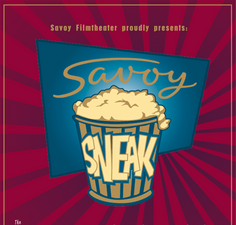Il paradiso è sempre altrove – Das Paradies ist immer woanders
In the organizer's words:
"Il paradiso è sempre altrove - Paradise is always somewhere else" is the third project of the Italian-German "Theater of Memory", founded in 2014 by theater directors Matteo Marsan, Dania Hohmann, Ulrich Waller and film director Eduard Erne.
For almost ten days, Italian and German actors, musicians and singers will come together with a small team to bring another chapter of the two countries' shared history to life in a tranquil village square in Tuscany, Piazza Castelli in San Gusmè.
The special feature: Italian and German professional actors, together with a group of amateur actors, slip into characters from the respective eras and try to play history together, in both languages, and thus make it possible to experience it in a different way in the truest sense of the word. Because when playing, you can experience misunderstandings, injuries, disturbances, but also the longing for the other culture directly and physically, in the sense of a cathartic, ancient model of theater.
It all began in 2013, when Hohmann and Waller were looking for a way to commemorate the victims of the Palazaccio massacre, not far from San Gusmè. They knew about the theater group Cantiere del Bruscello from Castelnuovo Berardenga and had already seen a few performances by the troupe. It was more by chance that they came into contact with Matteo Marsan, the director. This led to the idea of creating a play together based on completely different cultures of remembrance: "Albicocche rosse - Bloody Apricots" - the story of a Tuscan village from 1940-44.
The research for the project - which centered on interviews with survivors of the massacre - also became the basis for the film "The Forgotten War", which was created together with Eduard Erne and which also used parts of the performance.
From this developed the working method that was later reused, with extensive research, especially interviews with contemporary witnesses at the beginning, which then flowed into the later text invention.
Over the years, a solid core of actors and actresses has formed on both the Italian and German sides, including Peter Franke, Gianni Ferreri, Jörg Kleemann, Stefano Santomauro, Anneke Schwabe and, until his unexpected death, George Meyer-Goll. Many of the Bruscellanti are also taking part for the third time this year, such as Silvia Tognazzi and Alessandro Rigacci. It is a similar story with the staff: Georg&Paul, the set designers, Bettina Proske (this year represented by Susann Günther) and Laura Celesti (costume), Alex Fahima, Christiane Schindler as producer and the whole team around Matteo Marsan and the Theater Vittorio Alfieri and technicians such as Davide Fatemi have accompanied the project from the very beginning.
Without generous donations, such a unique project would be unthinkable. The ZEIT Foundation, the KOERBER Foundation, but also individuals such as Antje Ellermann or Claus and Annegret Budelmann, Wolf and Annette Römmig, as well as institutions such as the Tuscany region or the German Foreign Office or the Goethe-Institut Rome, make this project possible in the first place.
And this time, too, the research began with contemporary witnesses: many of the PCI party functionaries from the region recalled a different time, also for the communist party, and from this, among other things, a text was created for the production team, which has now been put on stage in just under 9 days.
This time, the new project of our "Theater of Remembrance" dealt with the legendary 1970s, in which many developments and processes were set in motion that still affect us today: The women's movement, the sensitization to ecology, the beginning of inclusion through the opening of psychiatric clinics, the overcoming of terrorism as a form of political confrontation and with the dream that does not yet seem to be completely over: the dream of a fairer society.
For a whole generation of young Germans after 1968, Italy was something like the promised land for almost a decade. And with the "historic compromise", the peaceful overcoming of capitalism as an economic system in Italy suddenly seemed within reach. And this was against the backdrop of a bloody, almost civil war-like confrontation with Italian neo-fascism in the early 1970s. And with its radical left-wing subculture, with groups such as "Lotta continua" or "Potere operaio", its alternative social centers, the theater of Dario Fo and its free radio stations such as Radio Alice, Italy also appeared to be a model for the future.
The evening tells of this from the perspective of a Tuscan village, where three young Germans stray in 1975 to study the "revolution" and fall in love with this country at one of Unita's legendary festivals.
We are showing an edited video recording of the theater production.
This content has been machine translated.












